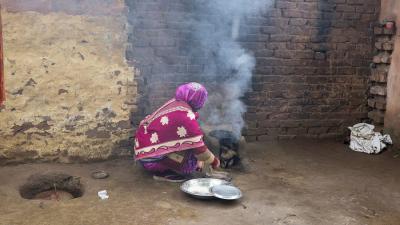60% of people worry about the safety of their food
This page is approximately a 5 minute read

The World Risk Poll data reveals that most of the world is worried they will be harmed by the food they eat every day. Over half of the world’s population, 60 per cent of people worldwide, say they are worried about the food they eat and 51 per cent are concerned about the safety of water they drink.
of the world’s population, say that they or someone they know had experienced serious harm from eating food in the two years prior to polling.
One billion people have experienced or know that someone that has experienced serious harm by food in the last two years
Seventeen per cent of poll respondents – equivalent to one billion people worldwide – experienced serious harm, or know someone who experienced serious harm, caused by the food they ate in the two years prior to polling, and almost as many, 14 per cent or 823 million, were seriously harmed by the water they drank.
The poll indicates that the burden of food-related diseases is not spread equally across the world and is highly related to economic development levels, with low-income and middle-income countries disproportionately affected. The greatest levels of harm from food occur in East Africa (29 per cent per experienced harm) and the Middle East (27 per cent experienced harm). Countries and territories that had experienced the most harm from food were those in the developing world; the top three countries were Liberia (52%), Zambia (51%) and Mozambique (45%).
However, the World Risk Poll reveals that in all these regions levels of worry about food are lower than the levels of harm experienced. East Africa (25 per cent worried) and Middle East (22 per cent worried).
In Southern Africa and Latin America, and the Caribbean, levels of harm experienced from food are high (26 per cent and 22 per cent respectively) but levels of worry are much higher (43 per cent and 33 per cent). The same pattern is repeated for experience of harm and worry about water. This suggests that communication about food and water risks should be very specific, so that people are enabled rather than disabled by it.
Worry about and experience of being seriously harmed by unsafe food
Survey question: 1. In general, how worried are you that each of the following things could cause you serious harm? Are you very worried, somewhat worried, or not worried? The food you eat [dark green bar] 2. Have you or someone you personally know, experienced serious harm from any of the following things in the past two years? [light green bar]
The countries with the highest levels of worry about food and water are those with developmental and climate-related issues.
Many of the countries with the highest levels of worry about food and water are low income economies and those experiencing severe weather events. The highest awareness of food and water related risk was in Malawi closely followed by a number of countries in sub-Saharan Africa.
Data from the Food and Agriculture Organisation of the United Nations shows that each year around three million people across the world die as a result of eating food tainted with bacteria, viruses, pesticides or chemical residues. In addition 600 million people a year fall ill through eating contaminated food, adding to the toll of human misery on the planet but also costing the global economy hundreds of billions of dollars. The World Health Organisation estimates that a further 485,000 people die each year from drinking contaminated water.
Countries experiencing harm from food and water
People across the world who answered YES to the question of whether they’d experienced serious harm from food and water in the two years prior to polling.
(% of each country population).
The World Risk Poll gives us the first ever global view of people’s attitudes and awareness of the risks posed by unfit food and drink. By understanding how people view food safety risks, what they worry about and what they never consider, we can create interventions that are relatable and practical so people can act in their interests and keep safe and healthy.
Forty-eight per cent of people worldwide think that GM foods are more likely to harm than help them over the next twenty years.
Although the world’s population suffers many problems from the food they currently eat, genetically modified (GM) food is seen as a high risk with 48 per cent of people worldwide saying they think that GM foods will mostly harm people in their country over the next twenty years. This is a view predominantly held in higher-income countries where GM foods are seen as a safety issue. In lower income countries 42 per cent of people think that GM foods will mostly help people in the next twenty years.
The World Risk Poll also shows that only 15 per cent of the world’s population trusts government organisations in their countries as their number one source of information on the safety of food and water, preferring to trust information provided by family and friends ( 31 per cent) and medical professionals (22 per cent). This pattern is the same for people who have experienced harm and those who have not experienced it.
Will GM food mostly help or harm people over the next 20 years?
Survey question: Please tell me whether you think genetically-modified food will most HELP or mostly HARM people in this country in the next 20 years. If you don’t have an opinion about this, please just say so. (by World Bank Income groups)
Despite the global nature of the safety threat from contaminated food and water, policymakers and professionals have been hampered by the lack of rigorous and comprehensive data on the level and nature of hazards and the prevalence of associated illnesses. The World Risk Poll supports efforts to collect data on the safety threat of contaminated food and water.


